Steel pipe is the most widely used gas pipe project. Its main advantages are: high strength, good toughness, bearing stress, impact resistance and tight, good plasticity, easy welding and thermal processing, the wall thickness is thinner, saving metal. But its poor corrosion resistance, need to have proper anti-corrosion measures.
Steel pipes for gas pipelines in the main city of seamless and welded pipe in two categories. High strength seamless steel pipe, but limit the production process and costs by generally small diameter steel pipe DN200 below. More types of welded pipe, welding can be divided by straight seam welded steel pipes and spiral welded steel pipe types. Among them, straight seam welded steel pipe (hereinafter referred to as straight seam pipe) also includes LSAW steel pipe and high frequency resistance welding (ERW) steel pipe and other types. SAWH steel pipe is a spiral seam double submerged arc welded (HSAW) pipe.
The straight seam and spiral pipe manufacturing process are compared, the former has the advantage of:
Spiral pipe manufacturing process to determine their residual stress is greater than the straight seam pipe, straight seam pipe with the overall result of expanding process, residual stress close to zero, while the spiral can not do this;
Spiral weld wrong side mostly in the range of 1.1 ~ 1.2mm, the standard requires the amount of the wrong side of the wall thickness to less than 10% for thin-walled tubes, the wrong side is difficult to meet the standard requirements, and straight seam pipe does not exist This problem;
Compared with straight seam pipe, spiral weld line flow is poor, serious stress concentration;
Coil heat affected zone is greater than the straight seam pipe, and pipe heat affected zone is the key to quality;
Spiral geometry accuracy, to the construction site, as counterpart, welding bring some difficulties.
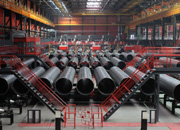 Threeway Steel is known as a professional supplier engaged in manufacturing and distributing a wide range of steel pipe, and our headquarter located the central part of China – Hunan and six associated factories throughout China.
Threeway Steel is known as a professional supplier engaged in manufacturing and distributing a wide range of steel pipe, and our headquarter located the central part of China – Hunan and six associated factories throughout China.
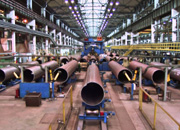 Threeway Steel is known as a professional supplier engaged in designing, manufacturing and distribution of a wide range of steel products with the headquarter located the central part of China – Hunan and six associated factories throughout China.
Threeway Steel is known as a professional supplier engaged in designing, manufacturing and distribution of a wide range of steel products with the headquarter located the central part of China – Hunan and six associated factories throughout China.
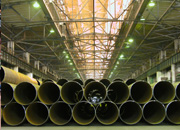 Threeway Steel is known as a professional supplier engaged in designing, manufacturing and distribution of a wide range of steel products with the headquarter located the central part of China – Hunan and six associated factories throughout China.
Threeway Steel is known as a professional supplier engaged in designing, manufacturing and distribution of a wide range of steel products with the headquarter located the central part of China – Hunan and six associated factories throughout China.
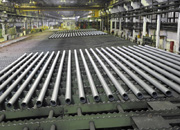 Threeway Steel is known as a professional supplier engaged in designing, manufacturing and distribution of a wide range of steel products with the headquarter located the central part of China – Hunan and six associated factories throughout China.
Threeway Steel is known as a professional supplier engaged in designing, manufacturing and distribution of a wide range of steel products with the headquarter located the central part of China – Hunan and six associated factories throughout China.
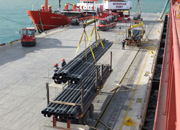 Threeway Steel is known as a professional supplier engaged in designing, manufacturing and distribution of a wide range of steel products with the headquarter located the central part of China – Hunan and six associated factories throughout China.
Threeway Steel is known as a professional supplier engaged in designing, manufacturing and distribution of a wide range of steel products with the headquarter located the central part of China – Hunan and six associated factories throughout China.

